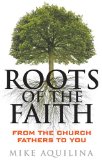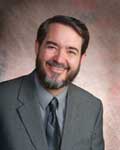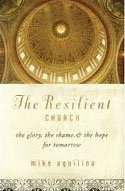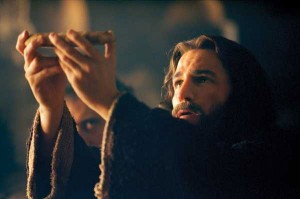[powerpress] An anti-pope who is considered a father of the Church and a saint. God’s great 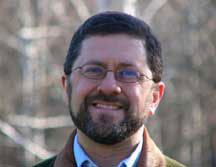 mercy knows no bounds! How does someone who was a self proclaimed pope (and considered the first
mercy knows no bounds! How does someone who was a self proclaimed pope (and considered the first 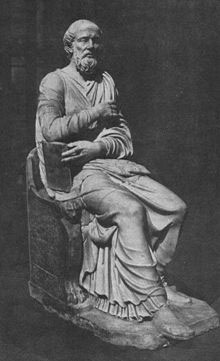 anti-pope in Church history) become a saint? The story of St. Hippolytus is a fascinating one. A greek-speaking priest who who lived in the late 100’s – early 200’s; his writings on the Eucharistic liturgy are some of the most beautiful of all time. Check him out Mike Aquilina’s great blog The Way of the Fathers
anti-pope in Church history) become a saint? The story of St. Hippolytus is a fascinating one. A greek-speaking priest who who lived in the late 100’s – early 200’s; his writings on the Eucharistic liturgy are some of the most beautiful of all time. Check him out Mike Aquilina’s great blog The Way of the Fathers
For more audio from Mike’s visit his Discerning Hearts page
Tags: catholic, catholic podcast, catholic prayer, cathollc spirituality, Church, father, fathers of the church, mercy, mike aquilina, osv, st. paul center for biblical theology
This entry was posted on Wednesday, August 13th, 2014 at 11:43 am
You can follow any responses to this entry through the RSS 2.0 feed.
Bruce and I had a great conversation with Mike Aquilina about the great St. Benedict.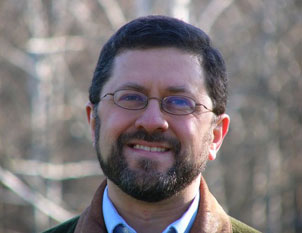
[powerpress]
Here is a teaching from another Benedict our Holy Father Pope Benedict XVI
St Peter’s Square
Wednesday, 9 April 2008
Dear Brothers and Sisters,
Today, I would like to speak about Benedict, the Founder of Western Monasticism and also the Patron of my Pontificate. I begin with words that St Gregory the Great wrote about St Benedict: “The man of God who shone on this earth among so many miracles was just as brilliant in the eloquent exposition of his teaching” (cf. Dialogues II, 36). The great Pope wrote these words in 592 A.D. The holy monk, who had died barely 50 years earlier, lived on in people’s memories and especially in the flourishing religious Order he had founded. St Benedict of Norcia, with his life and his work, had a fundamental influence on the development of European civilization and culture. The most important source on Benedict’s life is the second book of St Gregory the Great’s Dialogues. It is not a biography in the classical sense. In
accordance with the ideas of his time, by giving the example of a real man – St Benedict, in this case – Gregory wished to illustrate the ascent to the peak of contemplation which can be achieved by those who abandon themselves to God. He therefore gives us a model for human life in the climb towards the summit of perfection. St Gregory the Great also tells in this book of the Dialogues of many miracles worked by the Saint, and here too he does not merely wish to recount something curious but rather to show how God, by admonishing, helping and even punishing, intervenes in the practical situations of man’s life. Gregory’s aim was to demonstrate that God is not a distant hypothesis placed at the origin of the world but is present in the life of man, of every man.
This perspective of the “biographer” is also explained in light of the general context of his time: straddling the fifth and sixth centuries, “the world was overturned by a tremendous crisis of values and institutions caused by the collapse of the Roman Empire, the invasion of new peoples and the decay of morals”. But in this terrible situation, here, in this very city of Rome, Gregory presented St Benedict as a “luminous star” in order to point the way out of the “black night of history” (cf. John Paul II, 18 May 1979).
In fact, the Saint’s work and particularly his Rule were to prove heralds of an authentic spiritual leaven which, in the course of the centuries, far beyond the boundaries of his country and time, changed the face of Europe following the fall of the political unity created by the Roman Empire, inspiring a new spiritual and cultural unity, that of the Christian faith shared by the peoples of the Continent. This is how the reality we call “Europe” came into being.
St Benedict was born around the year 480. As St Gregory said, he came “ex provincia Nursiae” – from the province of Norcia. His well-to-do parents sent him to study in Rome. However, he did not stay long in the Eternal City. As a fully plausible explanation, Gregory mentions that the young Benedict was put off by the dissolute lifestyle of many of his fellow students and did not wish to make the same mistakes. He wanted only to please God: “soli Deo placere desiderans” (II Dialogues, Prol. 1). Thus, even before he finished his studies, Benedict left Rome and withdrew to the solitude of the mountains east of Rome. After a short stay in the village of Enfide (today, Affile), where for a time he lived with a “religious community” of monks, he became a hermit in the neighbouring locality of Subiaco. He lived there completely alone for three years in a cave which has been the heart of a Benedictine Monastery called the “Sacro Speco” (Holy Grotto) since the early Middle Ages. The period in Subiaco, a time of solitude with God, was a time of maturation for Benedict. It was here that he bore and overcame the three fundamental temptations of every human being: the temptation of self-affirmation and the desire to put oneself at the centre, the temptation of sensuality and, lastly, the temptation of anger and revenge. In fact, Benedict was convinced that only after overcoming these temptations would he be able to say a useful word to others about their own situations of neediness. Thus, having tranquilized his soul, he could be in full control of the drive of his ego and thus create peace around him. Only then did he decide to found his first monasteries in the Valley of the Anio, near Subiaco.
In the year 529, Benedict left Subiaco and settled in Monte Cassino. Some have explained this move as an escape from the intrigues of an envious local cleric. However, this attempt at an explanation hardly proved convincing since the latter’s sudden death did not induce Benedict to return (II Dialogues, 8). In fact, this decision was called for because he had entered a new phase of inner maturity and monastic experience. According to Gregory the Great, Benedict’s exodus from the remote Valley of the Anio to Monte Cassio – a plateau dominating the vast surrounding plain which can be seen from afar – has a symbolic character: a hidden monastic life has its own raison d’être but a monastery also has its public purpose in the life of the Church and of society, and it must give visibility to the faith as a force of life. Indeed, when Benedict’s earthly life ended on 21 March 547, he bequeathed with his Rule and the Benedictine family he founded a heritage that bore fruit in the passing centuries and is still bearing fruit throughout the world. (more…)
Tags: benedictines, catholic, catholic podcast, catholic prayer, cathollc spirituality, Europe, mike aquilina, Roman Empire, st benedict, st. paul center for biblical theology
This entry was posted on Friday, July 11th, 2014 at 5:02 am
You can follow any responses to this entry through the RSS 2.0 feed.
[powerpress]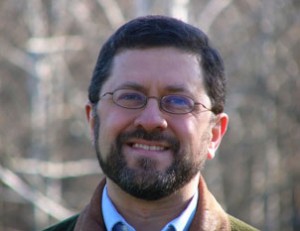
Known as the “Doer”, St. Basil the Great is an extraordinary figure in our Christian heritage.
Our Holy Father, Pope Benedict XVI has said,
Saint Basil the Great, one of the most eminent Fathers of the Eastern Church, showed to all those who wished
to give themselves completely to God the way of monastic life, “where the precept of concretely lived charity becomes the ideal of human coexistence, where the human being seeks God without limitation or impediment†(cf. Orientale Lumen, 9). Saint Basil is for you a model of perfect service of God and the Church. His whole life consisted in the harmonious exercise of the virtue of faith and in acts of practical love in the spirit of the evangelical counsels. Down the centuries the teaching of Saint Basil has borne mature fruits of religious life, especially in the East.
Take a listen to the interview above with Mike Aquilina and learn so much more about this “great” Father of the Church
Tags: faith, mike aquilina, Orientale Lumen, Saint Basil, st. basil the great, st. paul center for biblical theology
This entry was posted on Wednesday, January 2nd, 2013 at 12:05 am
You can follow any responses to this entry through the RSS 2.0 feed.
“Remember always…a tranquil conscience and an assured innocence produce a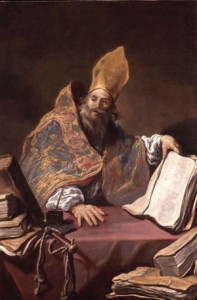 blessed life”
blessed life”
Saint Ambrose (c. between 337 and 340 – 4 April 397), was a bishop of Milan who became one of the most influential Church figures of the 4th century. Mariologist, heresy buster, emperor tamer, lover of hymns, an answer to a mother’s prayer (ask St. Monica), you name it, St. Ambrose fills the bill…
Did you know that St. Ambrose was one of the first recorded instances of someone reading silently? Interesting…
 Did you know that he received, essentially, the sacramental Grand Slam all at once? Wonder what that is?
Did you know that he received, essentially, the sacramental Grand Slam all at once? Wonder what that is?
…well let’s ask Mike Aquilina. Take a listen [powerpress]
For a fuller a rendering of his life, visit New Advent
So, so much from St. Ambrose! First, better to hear from the man himself (sort of…)
On Holy Mary
Next on Holy Repentance
A prayer of St. Ambrose
Lord Jesus Christ, I approach your banquet table in fear and trembling, for I am a sinner, and dare not rely on my own worth but only on your goodness and mercy. I am defiled by many sins in body and soul, and by my unguarded thoughts and words.
Gracious God of majesty and awe, I seek your protection, I look for your healing. Poor troubled sinner that I am, I appeal to You, the fountain of all mercy. I cannot bear your judgment, but I trust in your salvation. Lord, I show my wounds to You and uncover my shame before You. I know my sins are many and great, and they will fill me with fear, but I hope in Your Mercies, for they cannot be numbered.
Lord Jesus Christ, eternal king, God and man, crucified for mankind, look upon me with mercy and hear my prayer, for I trust in You. Have mercy on me, full of sorrow and sin, for the depth of your compassion never ends.
Praise to You, saving sacrifice, offered on the wood of the cross for me and for all mankind. Praise to the noble and precious blood, flowing from the wounds of my crucified Lord Jesus Christ and washing away the sins of the whole world. Remember, Lord, your creature, whom You have redeemed with Your Blood. I repent my sins, and I long to put right what I have done. Merciful Father, take away all my offenses and sins; purify me in body and soul, and make me worthy to taste the holy of holies.
May Your Body and Blood, which I intend to receive, although I am unworthy, be for me the remission of my sins, the washing away of my guilt, the end of my evil thoughts, and the rebirth of my better instincts. May it incite meto do the works pleasing to You and profitable to my health in body andsoul, and be a firm defense against the wiles of my enemies.
Tags: Church, conscience, doctors of the church, father of the church, fathers mike, mercy, mike aquilina, Saint Ambrose, st ambrose, st. paul center for biblical theology
This entry was posted on Friday, December 7th, 2012 at 12:21 am
You can follow any responses to this entry through the RSS 2.0 feed.
Episode 2 – Roots of the Faith: The Mass: the Universal Sign 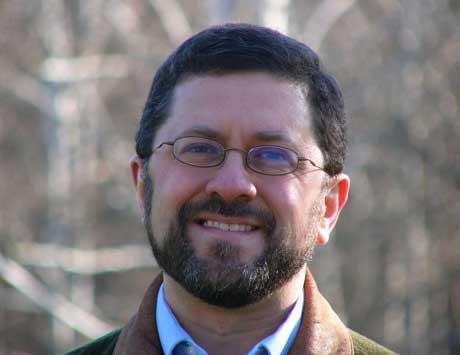
[powerpress]
Roots of the Faith – From the Church Fathers to You with Mike Aquilina, makes clear that just as an acorn grows into a tree and yet remains the same plant, so the Catholic Church is a living organism that has grown from the faith of the earliest Christians into the body of Christ we know today. Hosted by Kris McGregor
Also visit Mike’s “Discerning Hearts” page for more audio downloads and information!
Tags: prayer, st. paul center for biblical theology
This entry was posted on Thursday, October 4th, 2012 at 6:19 am
You can follow any responses to this entry through the RSS 2.0 feed.
Episode 1 – Roots of the Faith: Witnesses to Tradition. A grand overview of Church tradition as passed down to us by the Fathers of the  Church…it’s scope and relevance for our lives today!Â
Church…it’s scope and relevance for our lives today!Â
[powerpress]
Roots of the Faith – From the Church Fathers to You with Mike Aquilina, makes clear that just as an acorn grows into a tree and yet remains the same plant, so the Catholic Church is a living organism that has grown from the faith of the earliest Christians into the body of Christ we know today. Hosted by Kris McGregor
Also visit Mike’s “Discerning Hearts” page for more audio downloads and information!
Tags: mike aquilina, roots of the faith, st. paul center for biblical theology
This entry was posted on Wednesday, September 26th, 2012 at 10:42 am
You can follow any responses to this entry through the RSS 2.0 feed.
Leave it to the wonderfully thoughtful Mike Aquilina to bring us the lives of just some of those glorious maternal nurturers we call “the 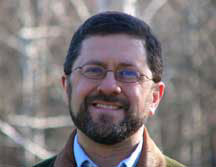 Mothers of the Church”.  From the well known Sts. Perpetua and Felicity and St. Monica to lesser known “mothers” like Proba the Poet and St. Olympias, Mike, along with his co-author Christopher Bailey, share their inspiring stories.  Mike Aquilina’s sincere love for these women and the witness they have provided us in our present age helps us to appreciate, once again, what God can do with ordinary people who are open to His extraordinary grace.
Mothers of the Church”.  From the well known Sts. Perpetua and Felicity and St. Monica to lesser known “mothers” like Proba the Poet and St. Olympias, Mike, along with his co-author Christopher Bailey, share their inspiring stories.  Mike Aquilina’s sincere love for these women and the witness they have provided us in our present age helps us to appreciate, once again, what God can do with ordinary people who are open to His extraordinary grace.
[powerpress]
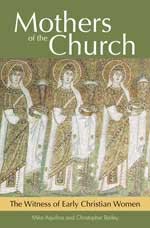 You can find Mike’s book here
You can find Mike’s book here
The Mothers of the Church include:
Holy Women of the New Testament
–St. Blandina
–St. Perpetua and St. Felicity
–St. Helena
–St. Thecla
–St. Agnes of Rome
–St. Macrina
–Proba the Widow
–St. Marcella
–St. Paula
–St. Eustochium
–St. Monica
–Egeria the Tourist
Tags: catholic, catholic podcast, catholic prayer, cathollc spirituality, Church, fathers of the church, mike aquilina, mothers of the church, osv, perpetua, st. paul center for biblical theology, witness
This entry was posted on Friday, June 8th, 2012 at 11:40 am
You can follow any responses to this entry through the RSS 2.0 feed.
Tags: catholic, catholic podcast, catholic prayer, cathollc spirituality, scott hahn, st. paul center for biblical theology
This entry was posted on Thursday, January 5th, 2012 at 7:47 am
You can follow any responses to this entry through the RSS 2.0 feed.
Tags: catholic, catholic podcast, catholic prayer, cathollc spirituality, scott hahn, st. paul center for biblical theology
This entry was posted on Thursday, January 5th, 2012 at 7:44 am
You can follow any responses to this entry through the RSS 2.0 feed.
Tags: catholic, catholic podcast, catholic prayer, cathollc spirituality, scott hahn, st. paul center for biblical theology
This entry was posted on Thursday, January 5th, 2012 at 7:38 am
You can follow any responses to this entry through the RSS 2.0 feed.
Tags: catholic, catholic podcast, catholic prayer, cathollc spirituality, scott hahn, st. paul center for biblical theology
This entry was posted on Thursday, January 5th, 2012 at 7:29 am
You can follow any responses to this entry through the RSS 2.0 feed.
 Episode 12– The History of the Future
Episode 12– The History of the Future
The Resilient Church with Mike Aquilina, offers a fascinating look at the trials and triumphs of the Catholic Church over the past two thousand years. Fast-paced sketches of critical periods in church history give readers perspective on the challenges faced by the church today. Mike Aquilina does not shrink from the realities of the past, including badly behaved leaders and those who betrayed the Lord. Yet he also leaves us all with well-founded hope for the future: God remains faithful in every circumstance and fulfills his promise to remain with his church always. Hosted by Kris McGregor
Also visit Mike’s “Discerning Hearts†page for more audio downloads and information!
Tags: catholic, catholic podcast, catholic prayer, cathollc spirituality, church history, mike aquilina, Resilient Church, st. paul center for biblical theology
This entry was posted on Monday, November 28th, 2011 at 6:23 am
You can follow any responses to this entry through the RSS 2.0 feed.
 Episode 10– The Secular Age
Episode 10– The Secular Age
The Resilient Church with Mike Aquilina, offers a fascinating look at the trials and triumphs of the Catholic Church over the past two thousand years. Fast-paced sketches of critical periods in church history give readers perspective on the challenges faced by the church today. Mike Aquilina does not shrink from the realities of the past, including badly behaved leaders and those who betrayed the Lord. Yet he also leaves us all with well-founded hope for the future: God remains faithful in every circumstance and fulfills his promise to remain with his church always. Hosted by Kris McGregor
Also visit Mike’s “Discerning Hearts†page for more audio downloads and information!
Tags: catholic, catholic podcast, catholic prayer, cathollc spirituality, church history, mike aquilina, Resilient Church, st. paul center for biblical theology
This entry was posted on Monday, November 14th, 2011 at 2:28 pm
You can follow any responses to this entry through the RSS 2.0 feed.
When you listen to Mike Aquilina express the mystery and beauty of the Eucharist, you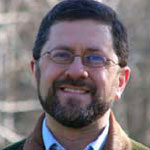 know it is truly coming from someone who has been deeply touched in his depths of his own heart by this tremendous sacrament of love. I love talking with Mike, he strengthens and encourages my own faith so much…he is such a gift to the body of Christ!  In “The Fire of God’s Love” he passes on insights on the Eucharist to inspire us all.  Saints and popes are represented in this collection, but also reflections from folks representing in our own time, like J.R.R. Tolkien,
know it is truly coming from someone who has been deeply touched in his depths of his own heart by this tremendous sacrament of love. I love talking with Mike, he strengthens and encourages my own faith so much…he is such a gift to the body of Christ!  In “The Fire of God’s Love” he passes on insights on the Eucharist to inspire us all.  Saints and popes are represented in this collection, but also reflections from folks representing in our own time, like J.R.R. Tolkien, 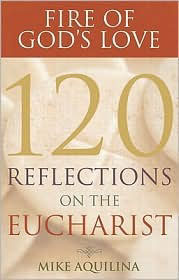 Maria Montessori, Conrad Hilton, and George Wiegel.
Maria Montessori, Conrad Hilton, and George Wiegel.
[powerpress]
Tags: catholic, catholic podcast, catholic prayer, cathollc spirituality, eucharist, eucharistic devotion, holy eucharist, Mike Aquilina More, st. anthony messenger books, st. paul center for biblical theology
This entry was posted on Sunday, June 26th, 2011 at 8:16 am
You can follow any responses to this entry through the RSS 2.0 feed.
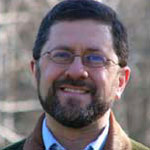 Episode 6– Crusades Abroad and at Home
Episode 6– Crusades Abroad and at Home
The Resilient Church with Mike Aquilina, offers a fascinating look at the trials and triumphs of the Catholic Church over the past two thousand years. Fast-paced sketches of critical periods in church history give readers perspective on the challenges faced by the church today. Mike Aquilina does not shrink from the realities of the past, including badly behaved leaders and those who betrayed the Lord. Yet he also leaves us all with well-founded hope for the future: God remains faithful in every circumstance and fulfills his promise to remain with his church always. Hosted by Kris McGregor
Also visit Mike’s “Discerning Hearts†page for more audio downloads and information!
Tags: catholic, catholic podcast, catholic prayer, cathollc spirituality, church history, crusades, mike aquilina, Resilient Church, st. paul center for biblical theology
This entry was posted on Tuesday, June 14th, 2011 at 8:34 pm
You can follow any responses to this entry through the RSS 2.0 feed.

